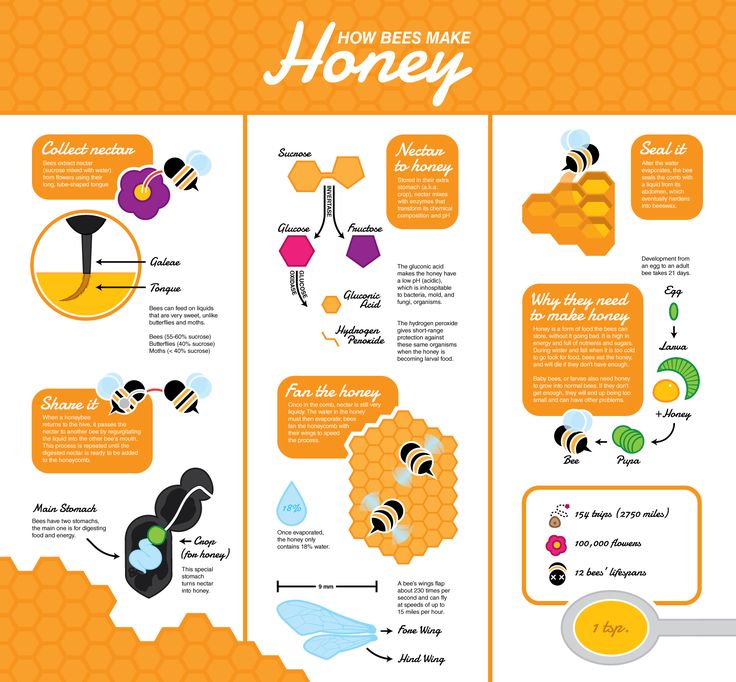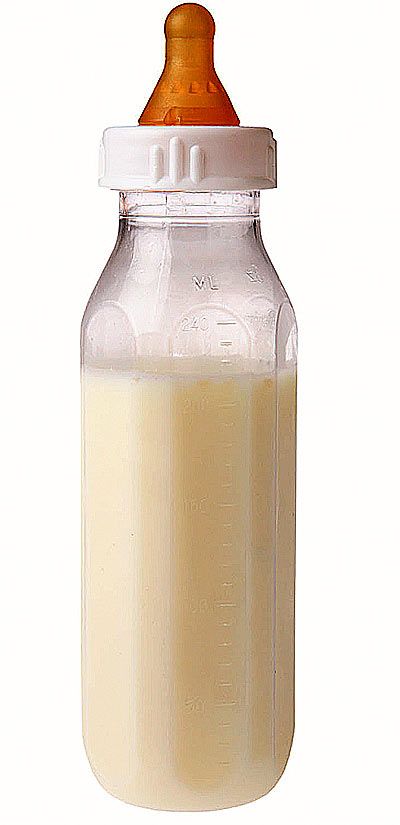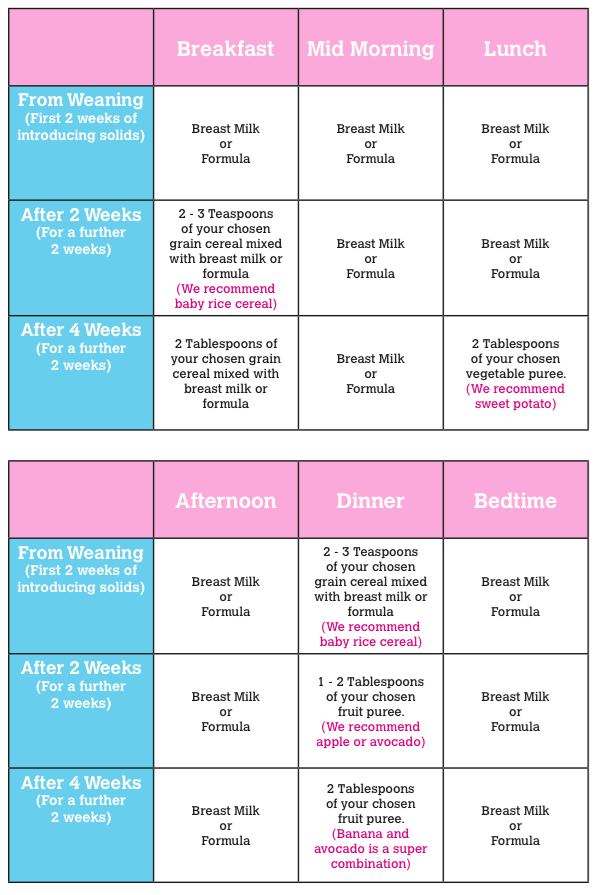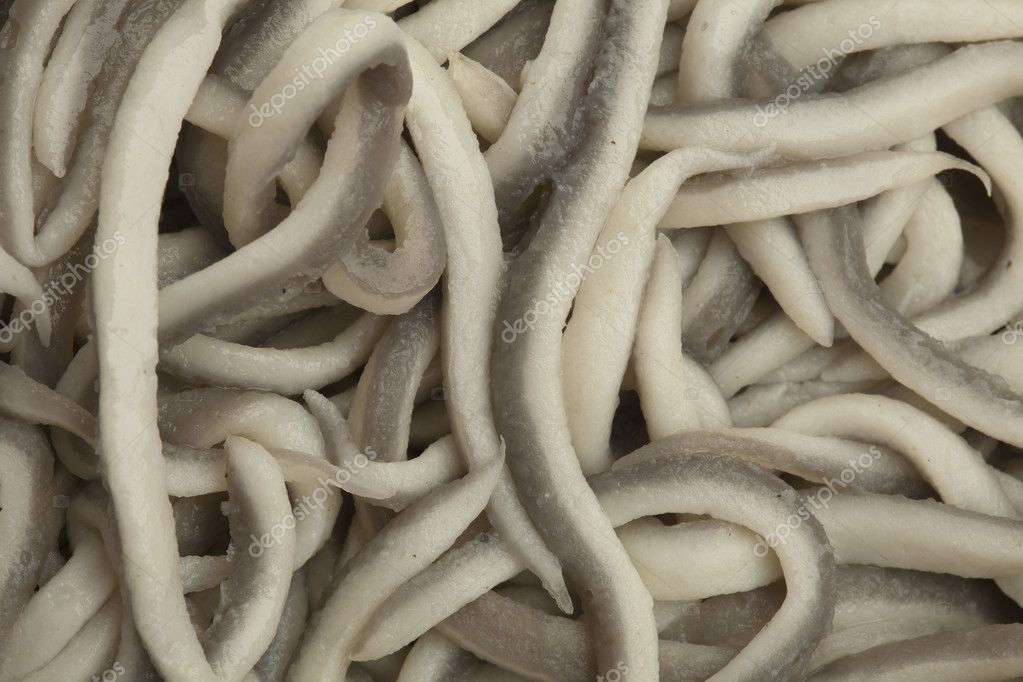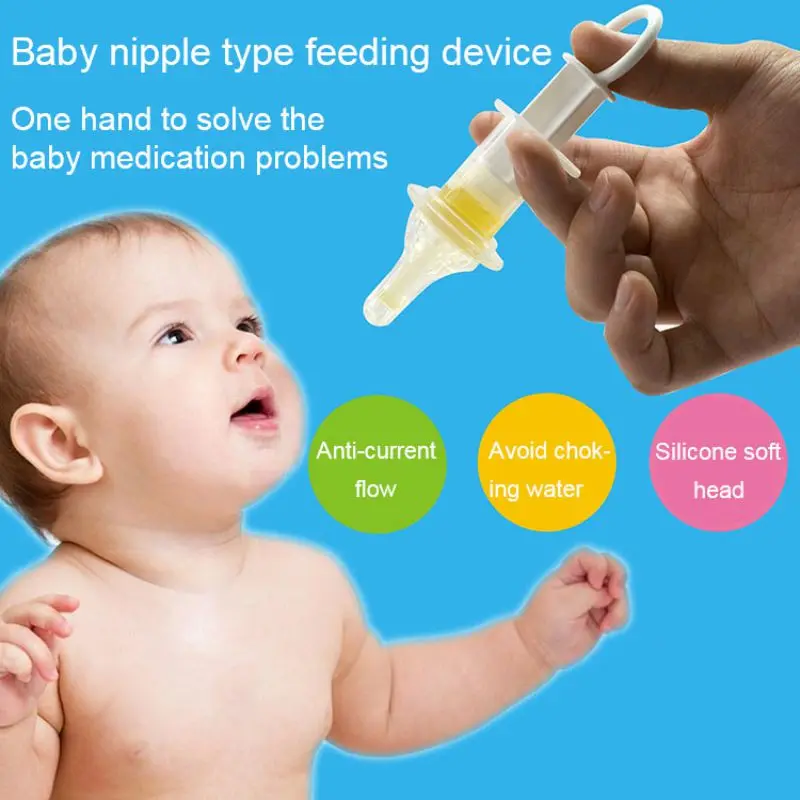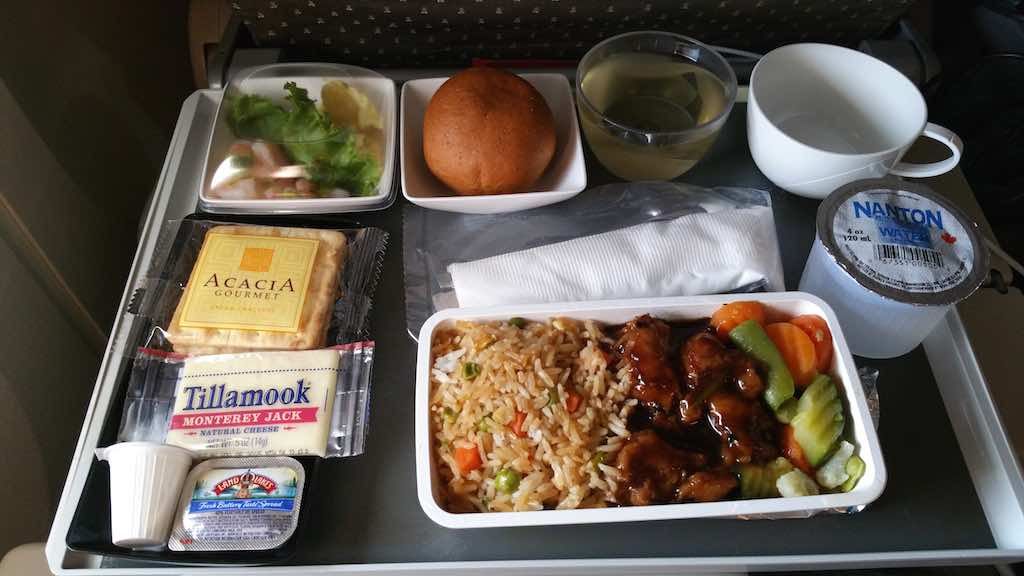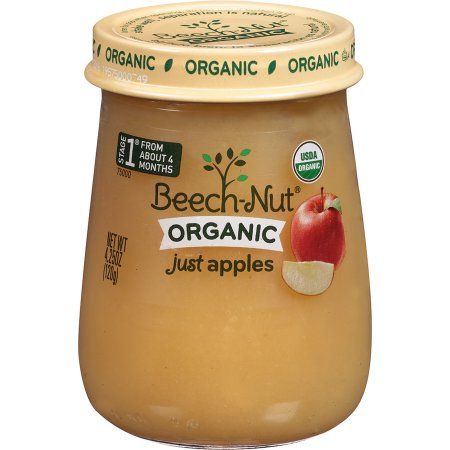Baby not digesting food
Are Chunks of Food in Baby Poop Normal? (Bananas, Carrots, and More)
A baby’s poop can tell you a lot about their development and overall health but if you happen to notice some chunks of food in your baby’s poop, is there a problem?
It is completely normal to find chunks of food in your baby’s poop if she is less than one year old because her digestive system has not fully matured and she likely does not chew her food into small enough pieces before swallowing. As your baby grows and becomes more comfortable eating solid foods her poop should return to normal consistency.
Keep reading to learn why some food might be more difficult for your baby to digest, and when to check in with a doctor if you’re worried about your little one’s digestive system.
Table of Contents
Is it normal to have chunks of food in baby poop?
Before having a baby, you probably steered well clear of poop. But now you know that a baby’s full diaper can actually tell you a lot about your little one’s overall health.
It’s pretty normal for your baby’s poop to contain small chunks of food. Especially if your baby has just started on solids or finger-foods, it can take a while for their digestive system to adjust. Pay attention to the factors we list below and if you continue to notice undigested food, a pediatrician can screen your baby for potential digestive issues.
Even though it might be startling to open your baby’s diaper and see chunks of food, rest assured that it’s a pretty normal experience!
As your baby hits the 6-month mark and starts eating solid foods, it’s important to remember that he or she is still learning how to eat. Eating is a complicated bodily process, and a baby’s digestive system has a lot to learn over the first year or so of their life. Even if your kiddo’s digestive tract is completely matured, they’re probably still missing out on some crucial, food-eating hardware: teeth.
Don’t forget that there are many variables when it comes to your baby’s digestion of solid foods. Here are the most important factors:
Here are the most important factors:
- Baby’s age and teething
- Type of food
- Preparation of food
- Breastfed vs formula-fed
Babies don’t usually have many teeth when they start on solids.
Teeth are an important part of the digestive process for babies because they break the food down into particles small enough to be digested easily. Without this initial step, it’s more likely that chunks of food will pass through your little one’s digestive system and end up in their diaper. As your child’s teeth continue to come in and they become more efficient and practiced at chewing their food, you’ll probably notice fewer chunks of food in their poop.
What are the chunks in baby poop?
If you do notice strange chunks in your baby’s poop, it’s most likely undigested food particles. Some foods are especially high in fiber, which makes it hard for the body to digest.
Common baby foods that are high in fiber can include:
- Corn
- Beans
- Grains (especially whole grains)
- Seeds (sunflower, sesame, etc.
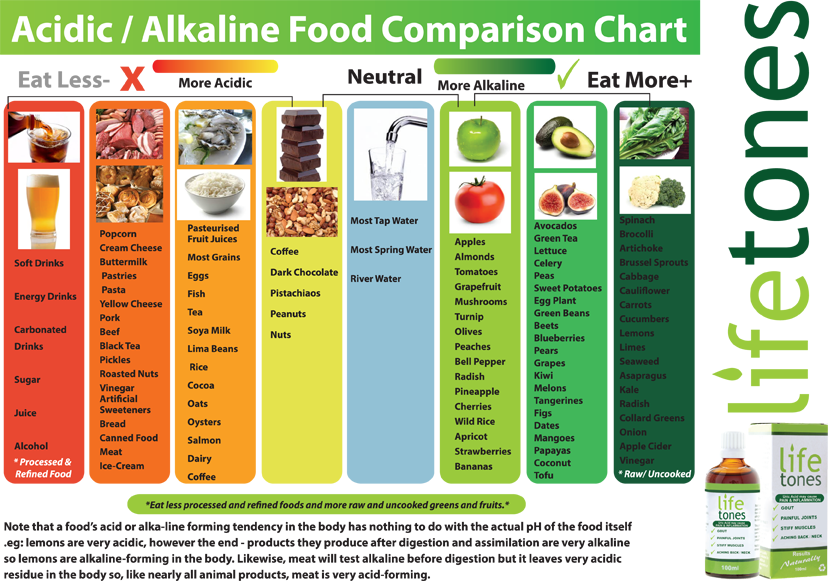 )
) - Peas
- Vegetable or fruit skins (tomatoes, grapes, etc.)
Fiber is an important part of a healthy diet, so even if you notice some chunks in your baby’s food, you’ll want to continue to feed them high-fiber foods. As your little one’s digestive system continues to mature, you should notice fewer chunky poops.
Is undigested food in baby poop normal?
It’s pretty normal to see undigested food in your baby’s poop.
Babies don’t have a full set of teeth when they first begin eating solids. Chewing food into smaller pieces makes it easier for the digestive enzymes to break down the remaining food particles. As your baby’s teeth come in and they learn to chew more thoroughly, more of their food will be completely digested.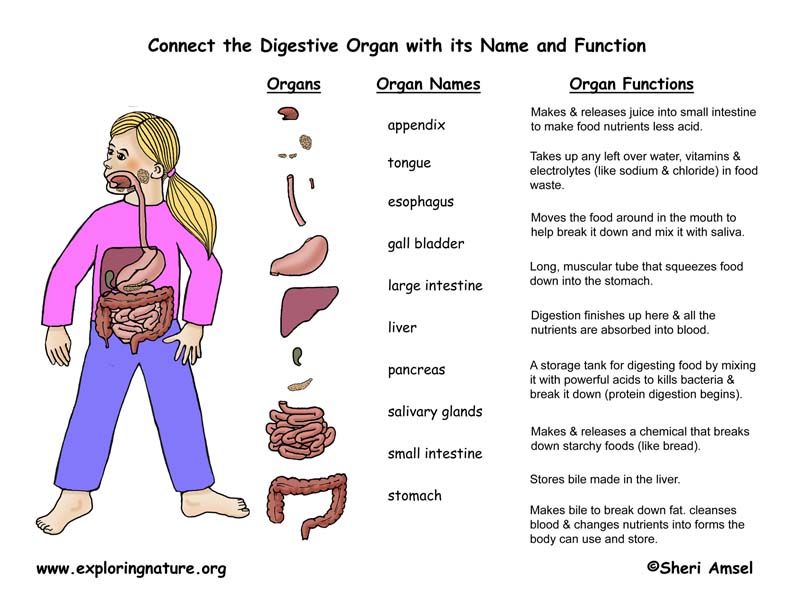
Another important factor to consider is how often your baby poops.
The more time food has to sit in the digestive tract, the more digestive enzymes are able to break down the food particles. Babies poop seemingly all the time, which means that food doesn’t sit in their colon for very long. Because of the quick turnaround time, you’re more likely to see chunks of food in a baby’s poop.
Adults have a much longer turnaround time between bowel movements, so our stools are more likely to be completely digested.
Undigested milk in baby poop
Before your baby starts on solids, you might already be seeing undigested food in their diapers, especially if your baby is breastfed.
Breastfed babies generally have mustard-yellow poops that are often described as “seedy.” This “seedy” texture is actually caused by little bits of undigested milk fat, which is completely normal. If you’re seeing big white chunks in your baby’s poop, though, it’s probably not milk.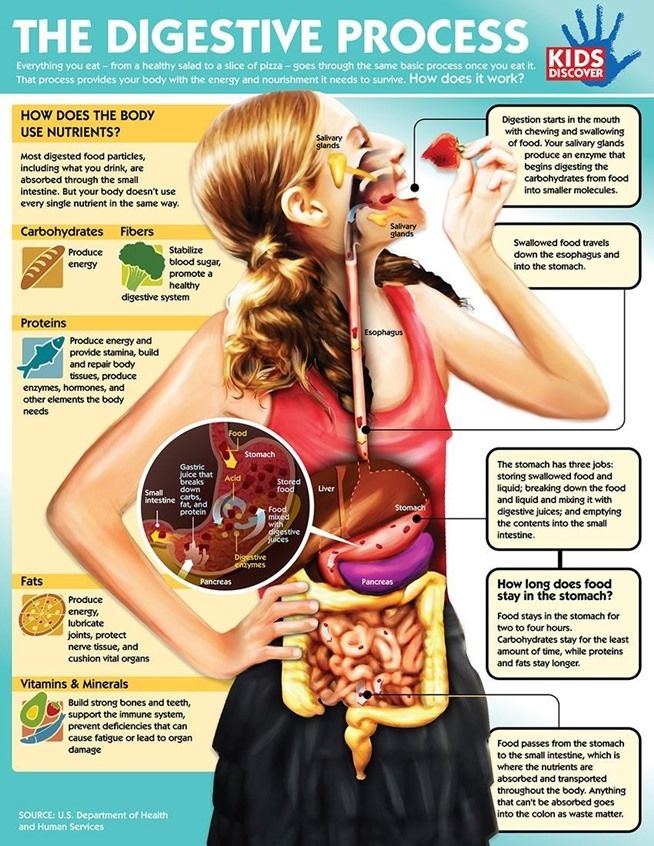
The whiteish color can actually be caused by a potentially dangerous liver problem, so if it continues for several consecutive bowel movements, you’ll want to check in with your child’s pediatrician ASAP!
Undigested formula in baby poop
If your baby is formula-fed, their poop color and texture can vary widely without any cause for concern. Sometimes, formula-fed diapers can even end up looking just as “seedy” as those produced by breastmilk.
If you’re seeing small bits of undigested formula in your baby’s diaper, it’s not a problem. It just means that your baby isn’t completely digesting all the formula they’re fed, and the extra is coming out the other side.
Of course, if your baby isn’t gaining the right amount of weight or seems lethargic, check in with a pediatrician.
Undigested corn in baby poop
Corn is one of the most common culprits for undigested food found in poop.
Even adult bodies can have a difficult time digesting corn completely! Corn has an outer shell made of cellulose, which your body can’t actually digest.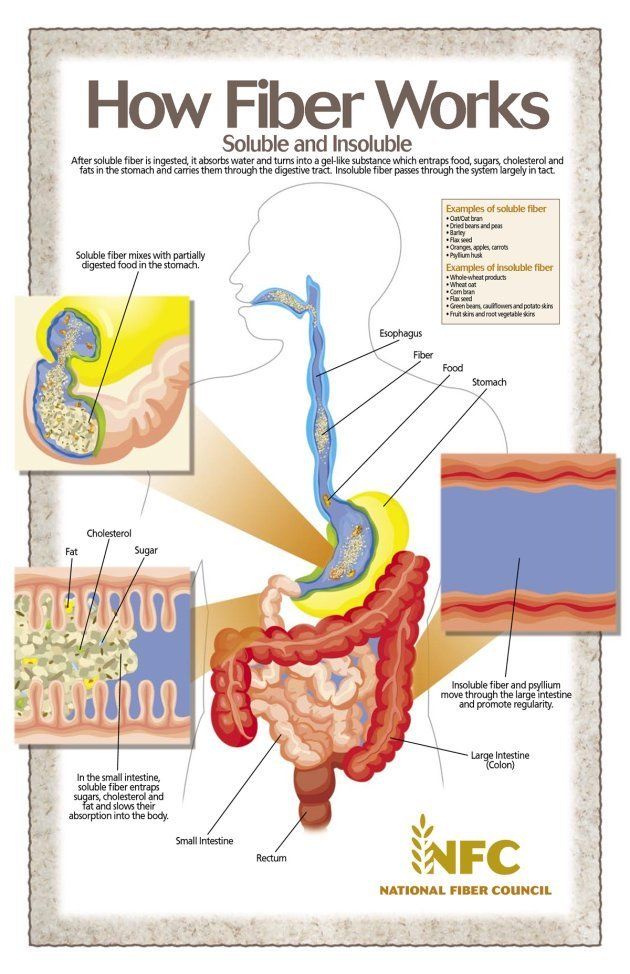 The human body relies on specific enzymes to metabolize the chemical compounds present in food, and without the right enzymes, there are some chemicals that your body simply can’t process.
The human body relies on specific enzymes to metabolize the chemical compounds present in food, and without the right enzymes, there are some chemicals that your body simply can’t process.
Even though you and your baby will never be able to digest the cellulose in the outer shell of corn kernels, that doesn’t mean that corn is a bad thing to eat. Your body can digest the food components inside the corn kernel, and those components include vitamins and minerals that help fuel your body. If you see what look like whole kernels of corn in your baby’s diaper, it’s probably just the outer shell of the corn that’s impossible to digest.
Your baby still got plenty of nutritional content from the inside of the corn, and the cellulose passed straight through their digestive system and out the other end.
Undigested banana in baby poop
Even though bananas are easy to digest, you might still find chunks of banana in your little one’s diaper.
The most likely culprit for big chunks is that stubborn lack of teeth that makes it extra tricky for your baby to get foods down to a manageable size.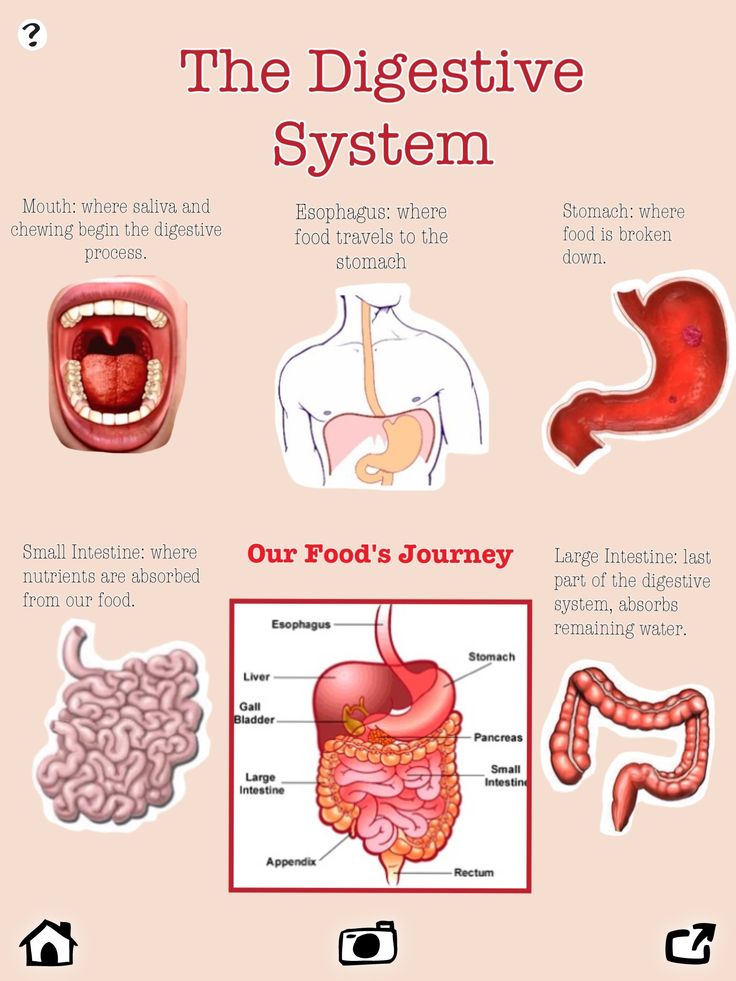 Bananas are dense and chock-full of good stuff, which means that even a small piece takes some time to digest completely.
Bananas are dense and chock-full of good stuff, which means that even a small piece takes some time to digest completely.
Bananas can also cause small black ‘threads’ to show up in your baby’s poop. These threads are just the center of the banana, and are trickier for the body to process.
Undigested raisins in baby poop
Raisins contain a lot of fiber, which means they’re hard for the body to digest.
It’s not unusual for entire raisins to make their way through a baby’s digestive tract and end up completely unscathed in their diaper. Luckily, as your little one’s digestive system matures and slows down a bit, the diaper full of raisins should disappear.
Undigested grapes in baby poop
If you notice bits of undigested grapes in your baby’s diaper, it’s probably the grape skins.
Grape skins are extremely fibrous, which makes them particularly difficult for the body to digest. Also, breaking up grape skins without a full set of teeth is pretty much impossible.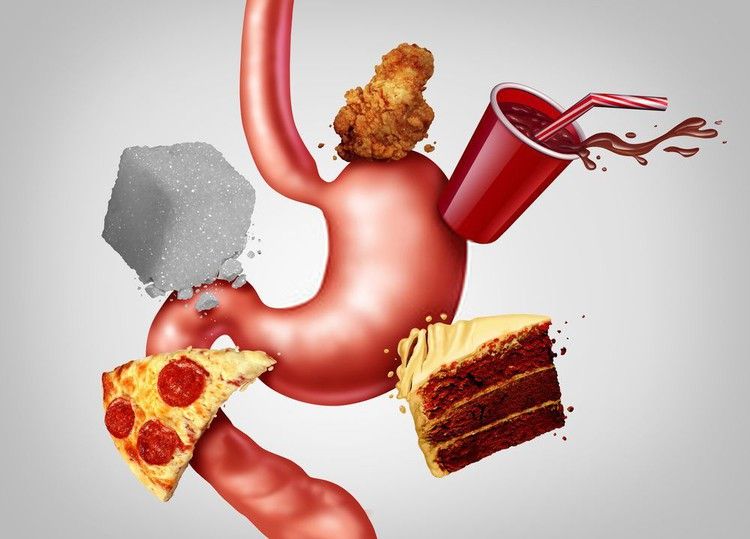 Doctors recommend waiting until your baby is around 10 months old before giving them grapes.
Doctors recommend waiting until your baby is around 10 months old before giving them grapes.
When you do start, make sure you thinly slice and lightly mash the grapes before giving them to your child. Whole, or even halved grapes, can be a major choking hazard.
Undigested blueberries in baby poop
Blueberries are very similarly structured to grapes, which means you might end up seeing some blueberry skins in your little one’s diaper.
If your baby swallows a whole blueberry, they might even poop out the entire blueberry, because their digestive system couldn’t get through the blueberry skin in order to digest the center parts. Because whole blueberries can be a choking hazard, cut them into small slices before giving them to your baby.
Slicing the berries will also make them easier to digest!
When to worry about food chunks in baby poop
Even though it can be startling to see chunks of food in your baby’s poop, it’s a pretty normal occurrence.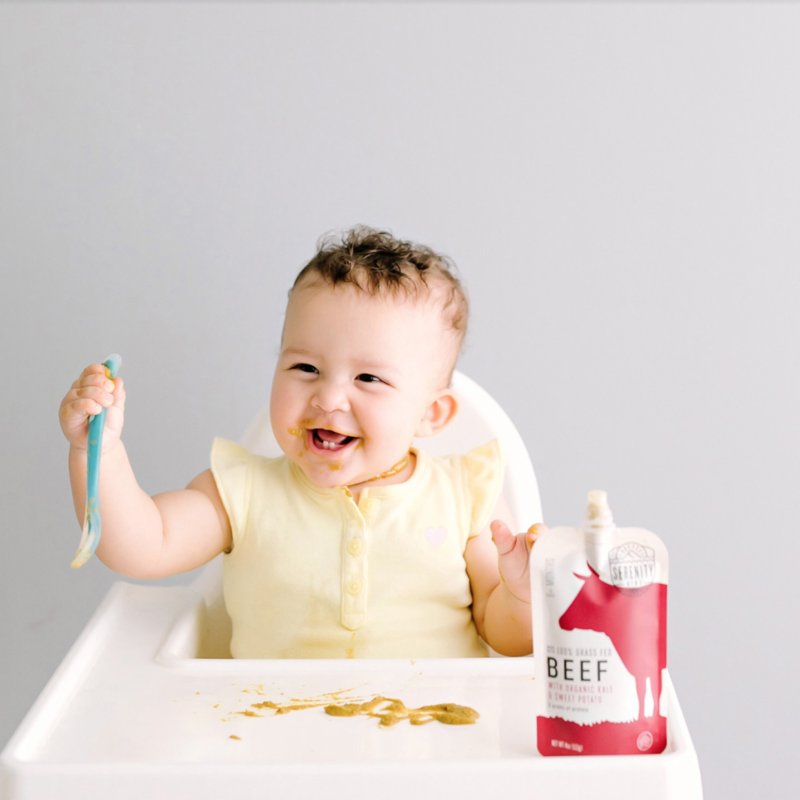 There are, however, some warning signs associated with chunky poops that would warrant a visit with the pediatrician. Call them right away if:
There are, however, some warning signs associated with chunky poops that would warrant a visit with the pediatrician. Call them right away if:
- Diarrhea – Your child has diarrhea, you’ll likely see chunks of food in their diaper. Diarrhea is most often caused by a stomach bug, but if it doesn’t resolve within 24 hours, contact a doctor.
- Persistency – There are chunks of food in every single one of your baby’s diapers, it might be a sign of a bigger digestive problem.
- Weight Loss – Your little one is losing weight, or not gaining as much as they should, it might mean they aren’t getting the nutrients they need because of a digestive problem.

- Blood – There is blood in your child’s poop or their poop looks black, seek medical attention.
Any of the symptoms mentioned above should be discussed at your child’s next doctor’s appointment. If your baby seems lethargic, has bloody poop, or has diarrhea for more than 24 hours, seek medical attention immediately.
The truth about kids’ poo – and what it says about your toddler’s health
Advertisement
Wellness
Your child's stools will change when he switches from milk to solid food. So what can you expect of the new normal?
(Photo: Nicole Teng)
Khoo Bee Khim
29 Jul 2020 06:30AM (Updated: 09 Aug 2021 03:14PM)
Bookmark Bookmark
WhatsApp Telegram Facebook Twitter Email LinkedIn
Undigested food in the stool, diarrhoea that lasts for days, a strained look on your toddler’s face when he’s on the potty … any of these scenarios are enough to make Mum and Dad worry.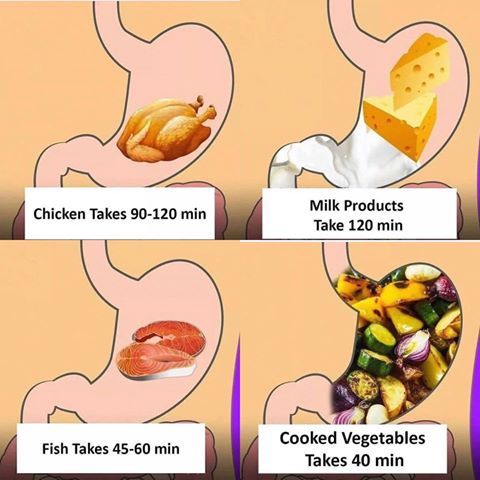 And we haven’t even addressed the unusual colours that Junior’s poop might take on (yellow or green poo, folks?).
And we haven’t even addressed the unusual colours that Junior’s poop might take on (yellow or green poo, folks?).
Parents may be further perplexed when their little one has reached a dietary milestone and is weaning off milk and starting on solid food. His stool will also change according to his new diet. But what is the new normal?
READ: What your poo says about your health
“A newborn baby will pass black meconium soon after birth,” said Dr Ang Ai Tin, a consultant paediatrician and neonatologist with Thomson Medical Centre. “Subsequently, when the baby starts drinking breast milk or formula, the consistency of the stools will be drier, and appear yellow or green.”
View this post on Instagram
A post shared by Princeton Playspace (@princetonplayspace)
The stool colours that raise concerns, said Dr Ang, are pale, clay-like or light yellow.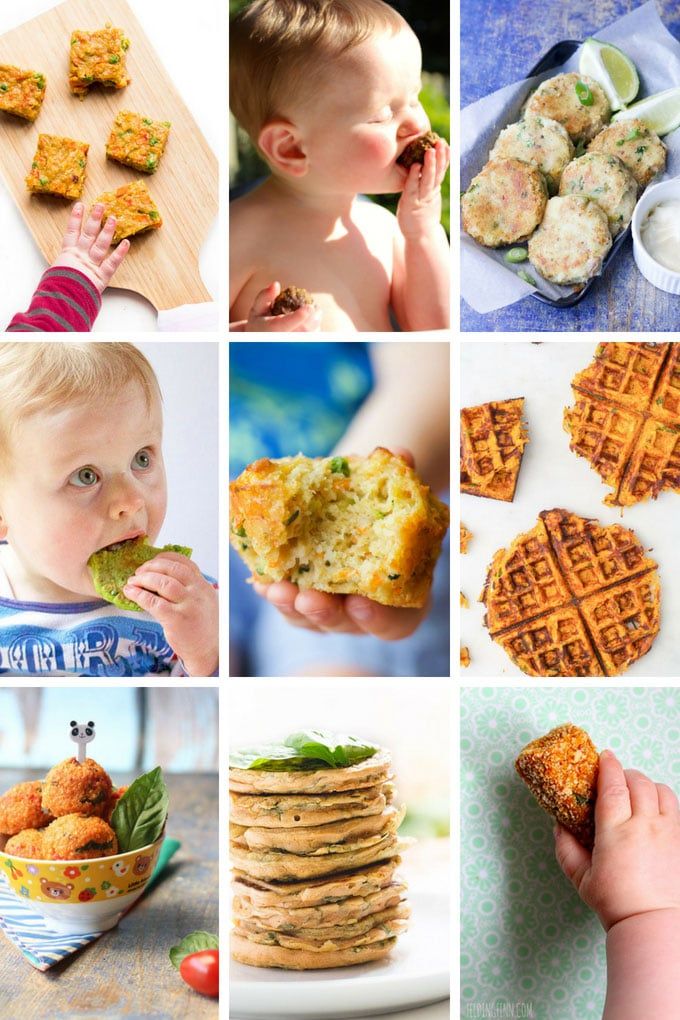 Consult a doctor if that happens and bring along a sample of your child’s stool so that the doctor can make an assessment accordingly, she said.
Consult a doctor if that happens and bring along a sample of your child’s stool so that the doctor can make an assessment accordingly, she said.
Another top concern that new parents have is the frequency of their child’s bowel movements. Is the little one supposed to poop every day? It all depends on the stage your child is at, said Dr Ang.
READ: The case against tickling: How laughter doesn't always signal enjoyment
“In older children, it may be once or twice daily, or even on alternate days. More importantly, the stools must not be hard and pellet-like, which is a sign of constipation."
Other than constipation, there are other potty situations that can leave parents perplexed. Here’s a look at some of them.
- The stool floats and appears shiny
It may be time to puree fewer vegetables for your little one. According to Dr Ang, the stool floats because there is too much fibre-induced gas in it. “Cutting down on fibre such as reducing the amount of beans, sprouts, cauliflower and broccoli in your child’s diet would help,” she said.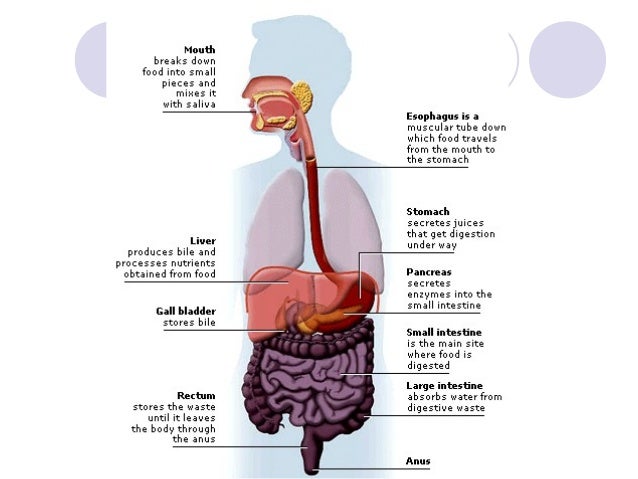 If doing so doesn’t change anything, it could point to gastroenteritis or lactose intolerance, she added, which would need a doctor’s assessment.
If doing so doesn’t change anything, it could point to gastroenteritis or lactose intolerance, she added, which would need a doctor’s assessment.
View this post on Instagram
A post shared by Let’s Go To The Bathroom (@potty_training_app)
On the other hand, stools with an oily sheen are a bigger concern as they could mean malabsorption caused by pancreatic disease, said Dr Ang. “So please see a doctor if the stools are floating and difficult to flush. It implies fat malabsorption and medical evaluation is needed.”
- There’s undigested food in your child’s stool
Undigested food in the stool can suggest that food is passing too quickly through the digestive tract for it to be fully digested, said Dr Lynette Goh, an associate consultant with KK Women’s and Children’s Hospital’s Gastroenterology, Hepatology and Nutrition Service Department.
“This may be accompanied by loose or watery stools and is often referred to as toddler’s diarrhoea, which typically occurs between the ages of one and four years old,” said Dr Goh.
The good news is, toddler’s diarrhoea usually resolves itself by four to five years of age. “It is common and there is no need to seek medical treatment if your child is otherwise well,” she said.
(Photo: Pexels/Streetwindy)In the meantime, monitor your child’s activity, appetite and weight gain for any changes, and keep him hydrated. “Take your child to a doctor if the stool contains blood or if he is lethargic, eating poorly and/or losing weight,” said Dr Goh.
- The stool is loose and accompanied by lots of gas
Acute gastroenteritis can cause your child to feel bloated and/or have diarrhoea. “This is largely caused by viruses which infect the intestine,” said Dr Goh, who added that other signs to look out for include vomiting, fever and abdominal pain.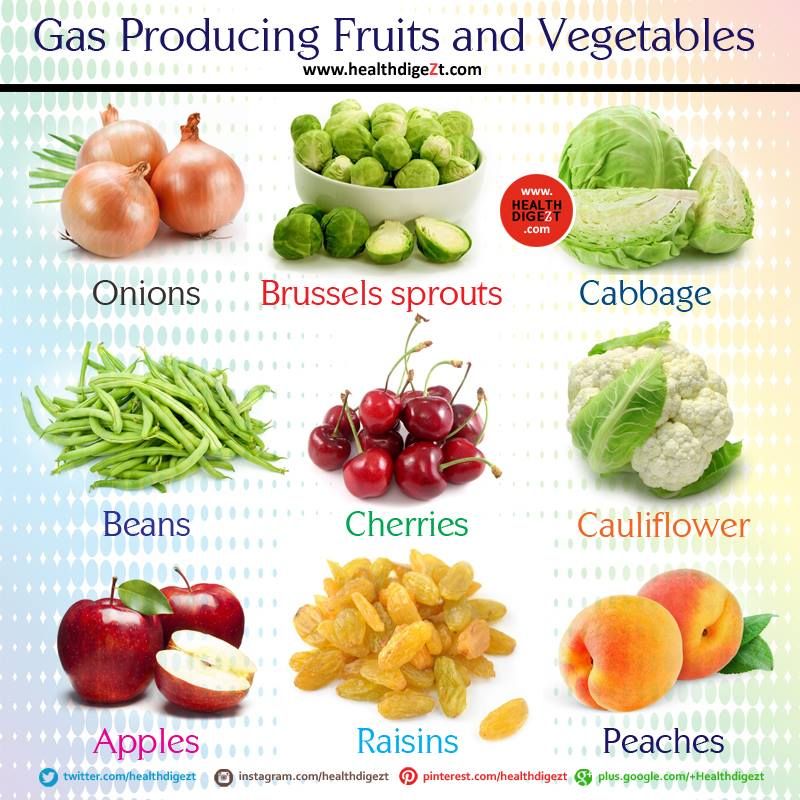
READ: Here's why kids can get sick right now – even if they’re not leaving the house
“Depending on the cause of the diarrhoea, it may last for two to four days. Occasionally, it may persist for up to two weeks,” she said.
It is a good idea to monitor the little one’s activity and feeding, and keep him hydrated. See a doctor if your child is dehydrated, lethargic, eating poorly and/or has blood in his stools, advised Dr Goh.
- Watery stool is passed a few times a day but your child is otherwise well
Just as some adults have irritable bowel syndrome (IBS), children can have the same condition, too. An intermittent diarrhoea could be a symptom of IBS, according to Dr Goh, especially when there is no fever or vomiting.
(Photo: Unsplash/Charles Deluvio)“In IBS, the gut is particularly irritable or sensitive, and symptoms can be triggered by specific food or even stress and anxiety,” she said. The child may experience abdominal pain, bloating, constipation and/or diarrhoea.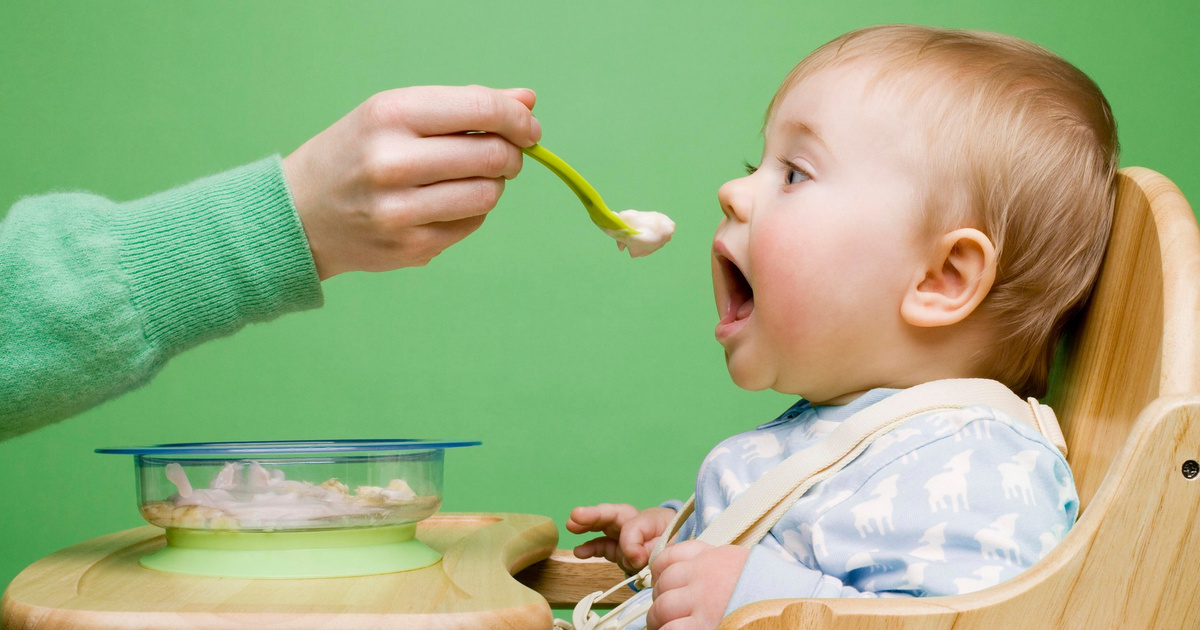
Sometimes, the diarrhoea could be caused by food intolerance or lactose intolerance, said Dr Ang. “In such instances, probiotics, adequate fluid intake and switching to lactose-free milk may be needed.”
But before such a diagnosis is made, Dr Ang said that “a proper dietary history and food diary in relationship to bowel pattern need to be studied”. Allergy testing or food challenge may be needed, she added.
Source: CNA/bk
Categories
RECOMMENDED
Content is loading...
Expand to read the full story
Recent Searches
Trending Topics
celebrity homes fashion health Women's Voices food & drink Places & Attractions
Overeating in children, digestive problems in a child: symptoms and treatment
Why does heaviness occur after eating?
Eating from birth occupies an important place in the life of every person.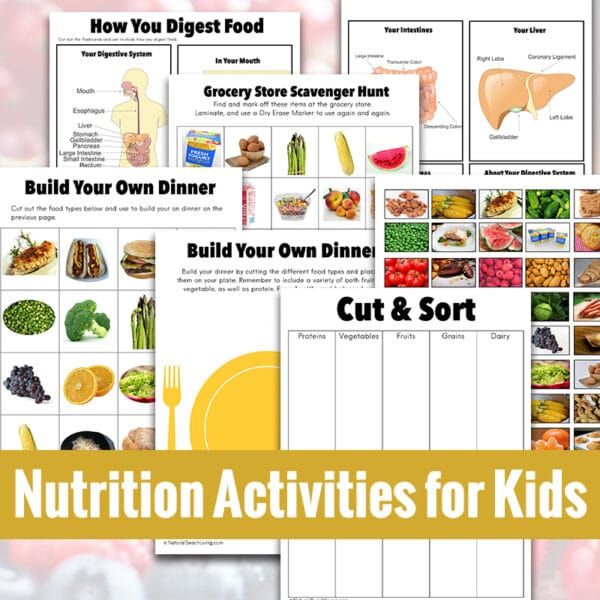 First we are fed, then we learn to eat ourselves. Not all periods go smoothly, because almost from birth, the digestive system can have problems. The baby always has a risk of getting an intestinal infection, as he pulls everything into his mouth, studying the world around him.
First we are fed, then we learn to eat ourselves. Not all periods go smoothly, because almost from birth, the digestive system can have problems. The baby always has a risk of getting an intestinal infection, as he pulls everything into his mouth, studying the world around him.
Another cause of problems with the tummy can be intolerance to lactose or other products that can be very difficult to determine, much less predict. All this can affect the digestion of the child.
A great influence on the digestion of a child is not only what he eats, but also how it happens. Sometimes, in order to persuade the baby to eat calmly, not to spin and not be distracted at the table, different settings are used: “When I eat, I am deaf and dumb”, “Do not indulge”. Eating turns into a status event, where everyone should behave decorously, quietly, nobly. But what about the child? He is looking for a way out of the situation. You can swallow the food you hate and return to the game.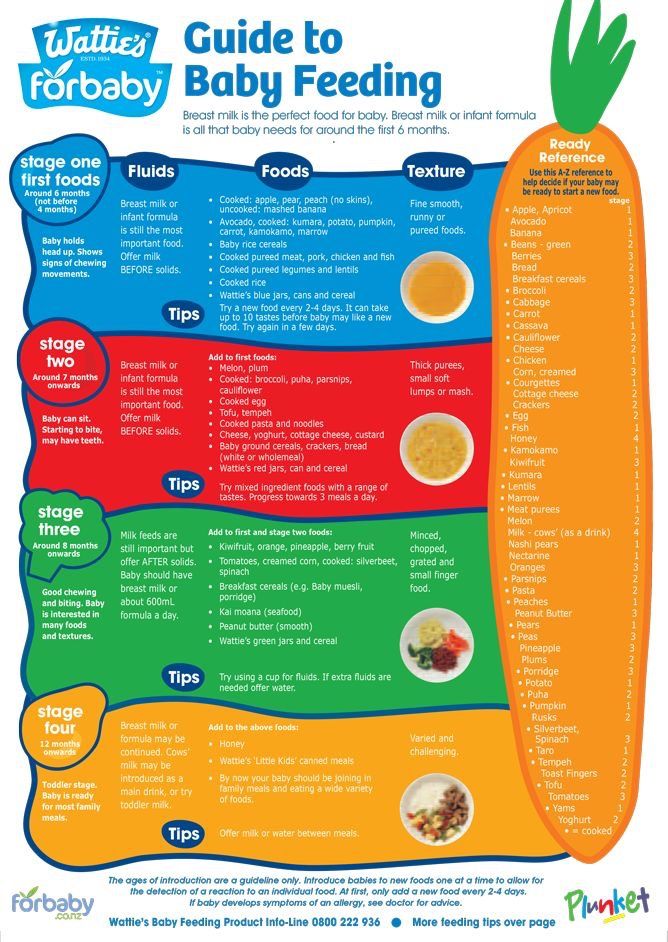 Or start playing for time, playing at the table, begging for sweets.
Or start playing for time, playing at the table, begging for sweets.
Stress, school grades, tests, exams, sections pile up on teenagers. Everything needs to be in time, but there is not enough time for a measured proper meal. In addition, in adolescence, and sometimes even with the start of school attendance, parents no longer have such precise control over everything that a child eats.
Most of the time the child eats outside the home. The quality of food in the school canteen may not be suitable for everyone, especially if there are restrictions. Advertising of fast food, snacks and carbonated drinks looms everywhere. Snacking on the run becomes habitual. What can we say about children, if adults can be dominated by the desire to get by with a sandwich between chores instead of a full meal. As a result, children may experience discomfort in the abdomen: discomfort, heaviness after eating, stool disorders, etc. What can help?
Surprisingly, the habit of chewing food well can be a useful tip.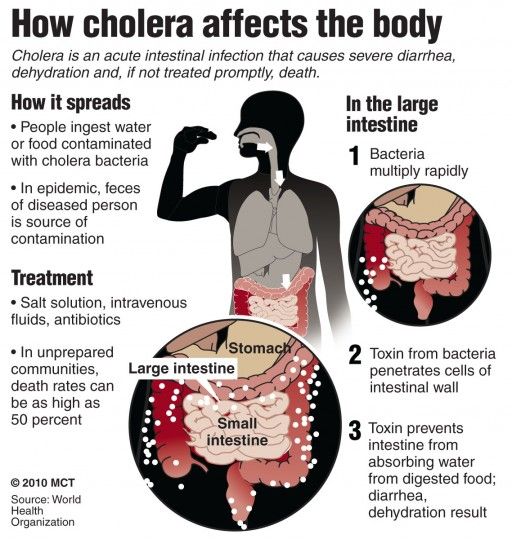 Few people know that digestion begins already in the mouth, and chewing is important not only for grinding food. The fact is that during chewing, food is processed by saliva, which contains enzymes - substances that help break down and further assimilate food.
Few people know that digestion begins already in the mouth, and chewing is important not only for grinding food. The fact is that during chewing, food is processed by saliva, which contains enzymes - substances that help break down and further assimilate food.
Telling a child to eat slowly and chew everything thoroughly rarely works. First of all, the baby watches how the parents eat at the table. You can involve the child in cooking, and the meal itself will be the final stage of the whole game. So children can get to know the products better, touch them. It is better to touch a raw potato than to catch a boiled one from the soup with your hands. Children may be more willing to eat their own food. You need to learn how to chew food thoroughly and instill this skill in children.
Prohibitive measures often do not apply to teenagers. A simple ban on not eating candy bars and not drinking soda is unlikely to help. The child should have an affordable alternative: food taken from home, the opportunity to buy ready-made healthy products.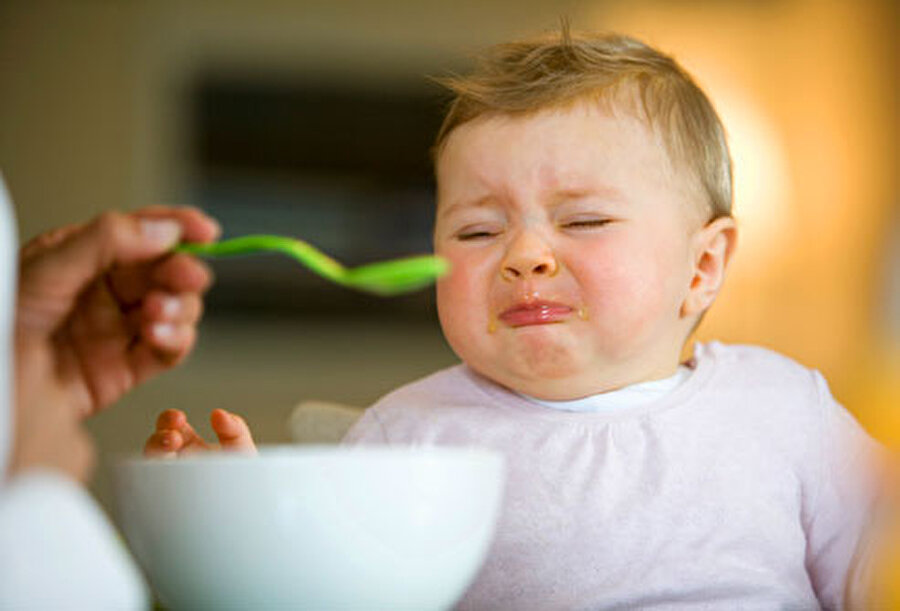
Intestine and brain
It is believed that our mood and psychological attitude can affect the digestive process. And what about emotions? If eating turns into stress, it can affect the process of digestion 1 . Many people know the lack of appetite in a stressful state, when the brain depresses digestion and distributes the body's resources for flight or attack in order to protect itself.
Sometimes overeating can be a way to relieve stress. Overeating can turn into the habit of eating everything to the last crumb, not from hunger, but to receive praise and permission to eat sweets.
A child under two years of age gains weight very quickly. From 2 to 5 years, his growth slows down, the need for food in proportion to his weight is no longer so great 1 . It is important for parents not to confuse these two concepts and to ensure that nutrition is optimal, and not excessive.
Even if the parents do not overfeed the child, this can happen on holidays, at a party, on vacation.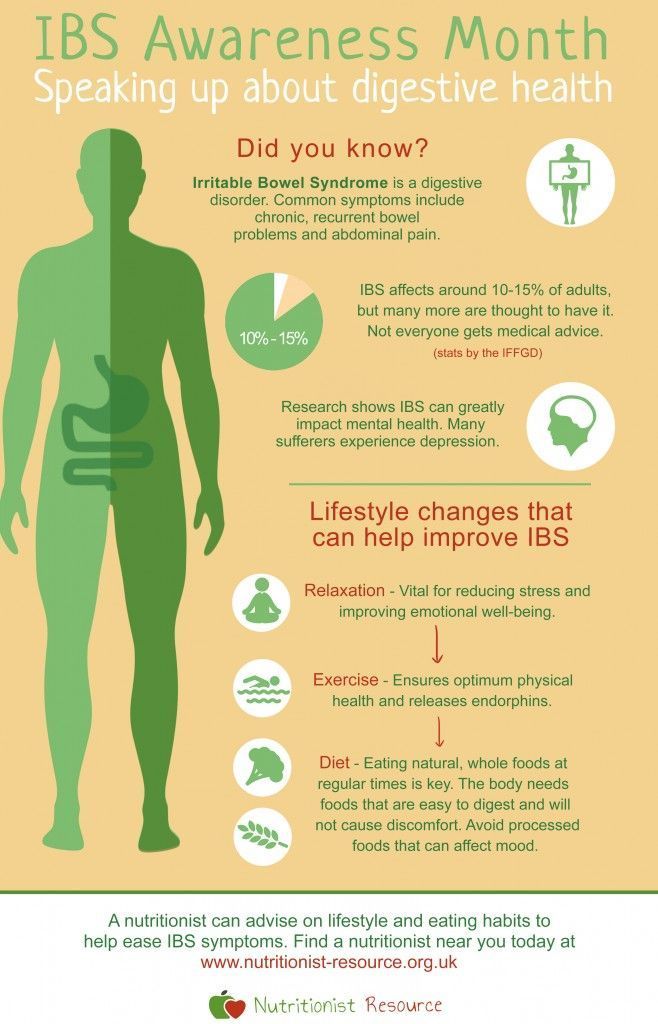 The digestive system may not be ready for a sudden overload.
The digestive system may not be ready for a sudden overload.
The opposite situation is the refusal of the child to eat. This may not be just a whim, but an attempt to avoid the unpleasant sensations that arise after eating certain products. Not all children can explain their feelings to their parents in detail and simply refuse what makes them uncomfortable. So "dislike" to certain products or dishes can be formed and persist for life. So there may be a lack of digestive enzymes for the digestion of any component of food, such as fats.
Main symptoms of indigestion in a child
4 :- heaviness in the abdomen;
- discomfort after eating;
- bloating, rumbling;
- flatulence;
- nausea;
- pain.
Prolonged disruption of the digestive processes can lead to diarrhea and even weight loss due to impaired nutrition 4 .
How and what to feed a child with "indigestion" of the stomach?
There are a number of recommendations that can help with digestive problems in children
3.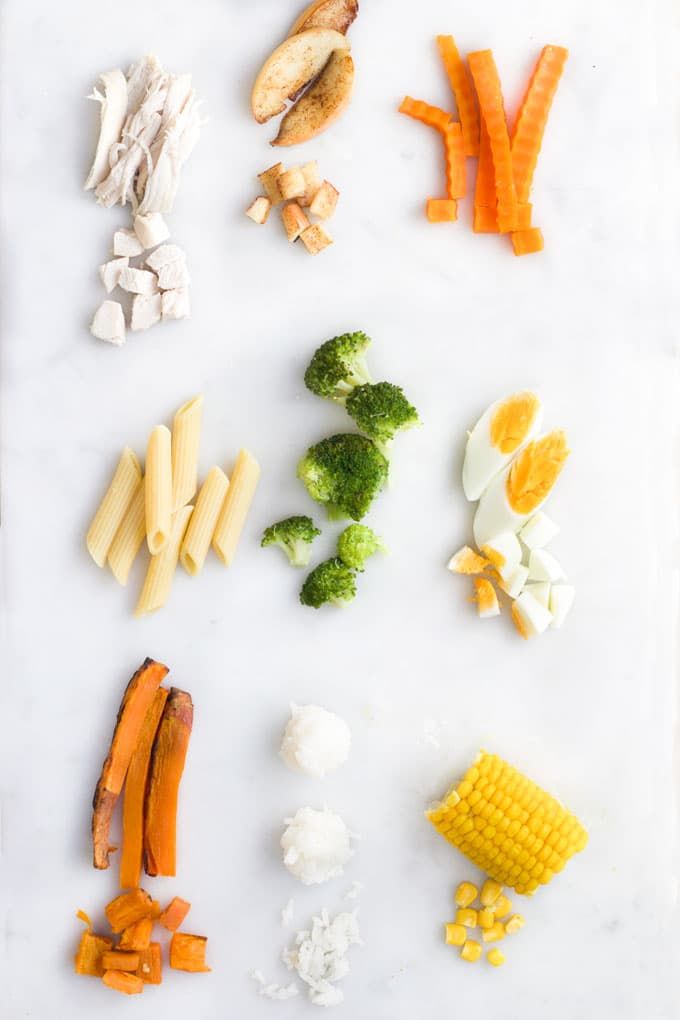 4 :
4 : - Regular daily routine and food intake, when the body gets used to and produces enzymes to digest food in a timely manner.
- Fractional nutrition - eating in small portions up to 5 times a day in order to prevent overeating and comply with the regimen.
- Thorough chewing and measured eating.
- A balanced diet or following your doctor's recommendations, if available.
- Gradual introduction of new products.
- Sufficient amount of water.
Naturally, this is not always possible to achieve. But it is better to try to follow these rules in order to improve the digestion of the child.
How to deal with indigestion in a child?
To compensate for the lack of digestive enzymes in children, enzyme preparations can be used. They help improve digestion0037 4 .
Learn more
Creon ® is a recognized enzyme preparation in Russia and worldwide.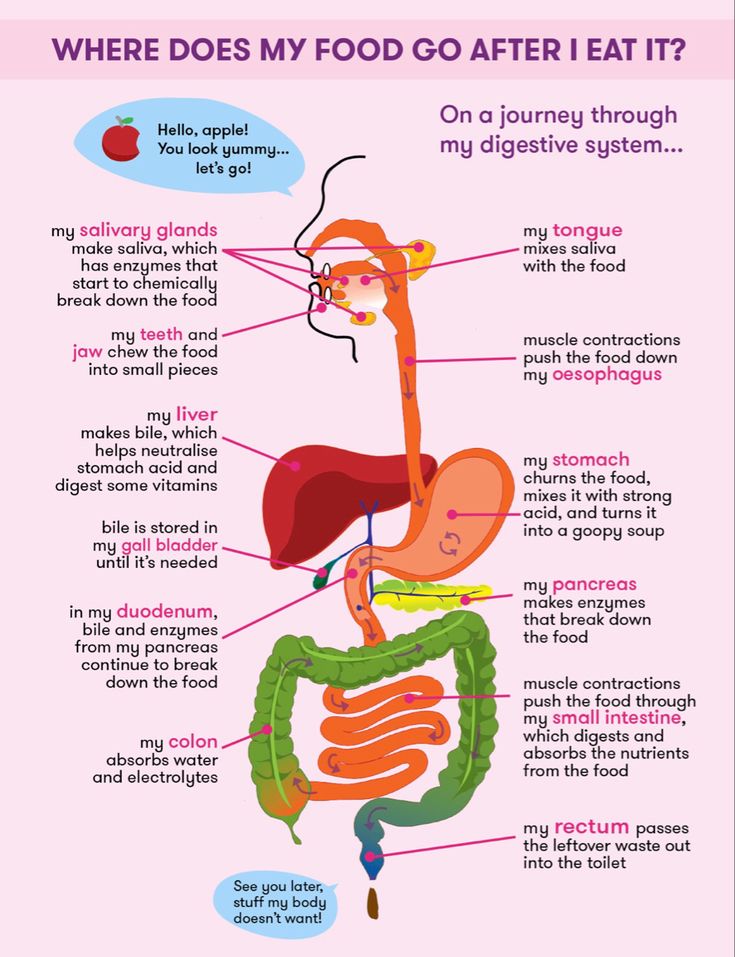 It supplements its own digestion and helps digest proteins, fats and carbohydrates 5 .
It supplements its own digestion and helps digest proteins, fats and carbohydrates 5 .
Feature of the drug Creon ® is its release form - a capsule, which contains hundreds of small particles inside. They are called minimicrospheres. These particles are especially suitable for taking by the youngest children, since the capsule can be opened and mini-microspheres can be added to food, puree or juice 2 . In children, the drug should be used in accordance with the doctor's prescription 2 .
Particle size and ease of use distinguishes Creon ® from the usual tablet forms. A newborn will not swallow a pill, older children can accidentally bite a pill with their teeth or refuse to swallow it, and not all adults are comfortable taking whole pills or capsules.
The life hack that a pill can be crushed or divided into parts is actually a delusion. If the integrity of the tablet is violated, its protective shell is destroyed, and the acidic environment of the stomach is detrimental to the unprotected enzyme.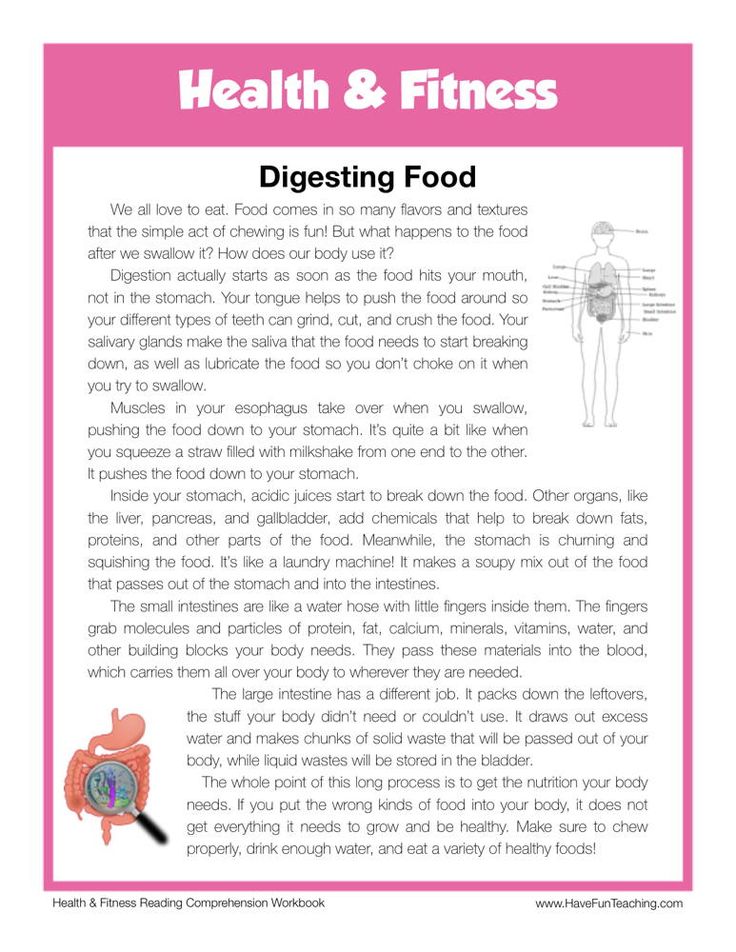 The opinion that in young children the environment of the stomach is not aggressive is also a delusion. Only in the first couple of weeks in an infant, the environment of the stomach is neutral, and by the age of four, the pH of the stomach in a child is very close to that of an adult 3 .
The opinion that in young children the environment of the stomach is not aggressive is also a delusion. Only in the first couple of weeks in an infant, the environment of the stomach is neutral, and by the age of four, the pH of the stomach in a child is very close to that of an adult 3 .
What worries any mother when choosing a drug? His safety. When taking Creon ® 10000, the body does not stop digesting food on its own, the drug is allowed for children from birth 2.4 .
You can learn more about Creon ® for children here.
types of disorders, types of diseases of the digestive system in babies and their prevention
The first weeks of a baby's life are a great stress for his digestive system. While the baby was in the womb, all the nutrients came through the placenta. But almost immediately after birth, the sterile intestines begin to colonize microorganisms, both beneficial and harmful.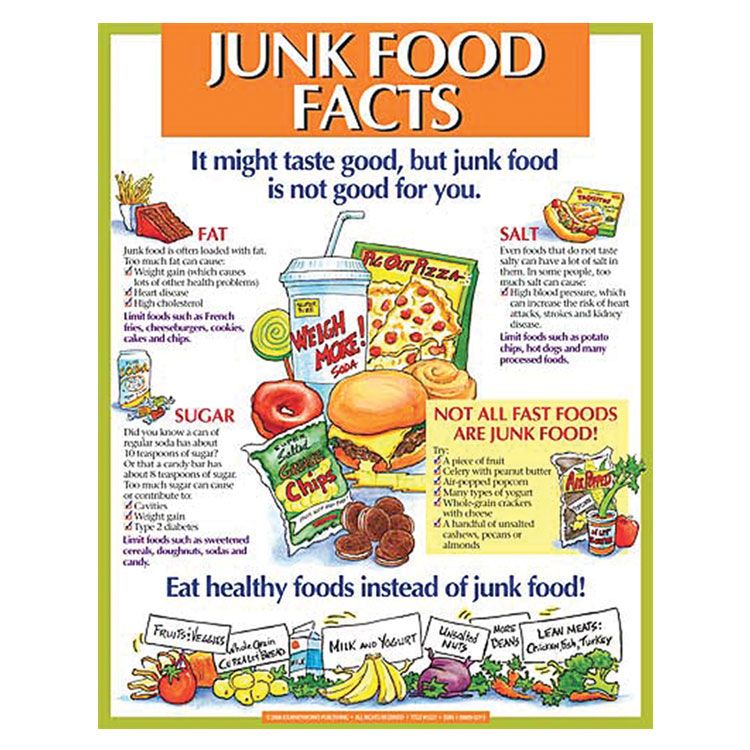
And such rapid changes cannot but affect the child's condition. Colic, bloating, constipation are frequent companions of the adaptation of the digestive system of the newborn to new conditions. Why digestive disorders occur and how to overcome them, we will tell in the article.
The digestive system of young children is imperfect. It will be a long time before the digestive organs in children begin to function in the same way as in adults. For example, in infants, the cardiac sphincter (the place where the short esophagus passes into the stomach) is poorly developed, therefore, like a bad damper, it allows the backflow of contents from the stomach. This is how regurgitation occurs - a frequent occurrence in the life of a baby [1]. The capacity of the stomach in children is small. On the first day of life - no more than 10 ml. With the expansion of the diet, this figure grows, and after a year the capacity is already about 300 ml. The muscular membrane of the stomach is poorly developed, so a small volume is the only barrier to overeating [2].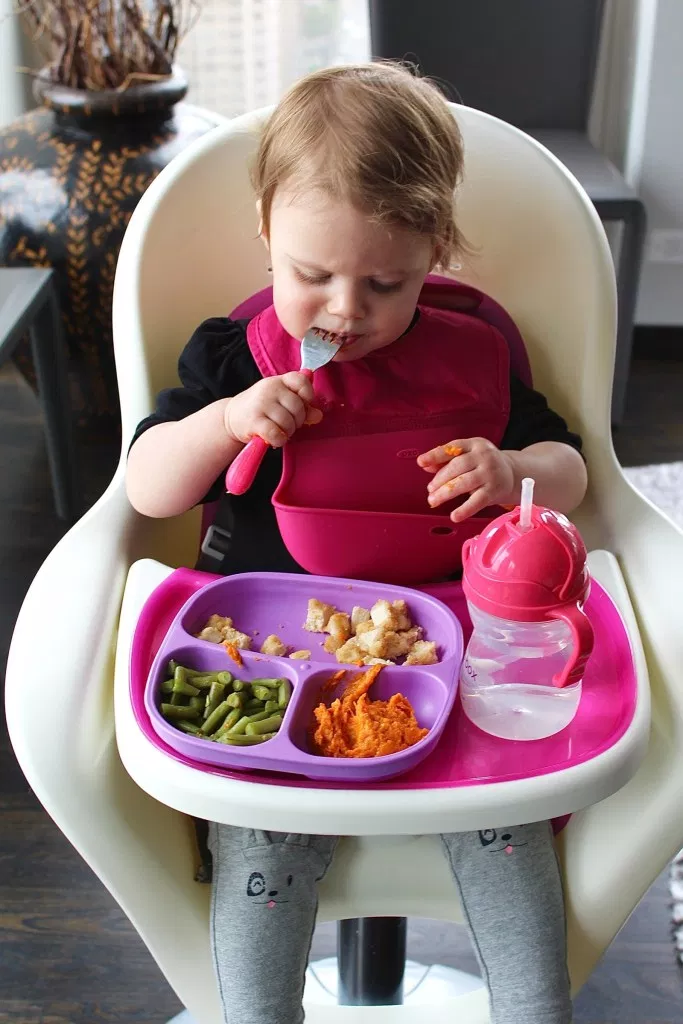
While the baby is breastfed, the gastric juice is not very active. Its components do not differ from the "adult" composition, but are contained in a minimal amount: pepsin for the breakdown of proteins, lipase for fats, chymosin for curdling milk. Digestion in children is geared towards good assimilation of mother's milk and adapted mixtures: proteins and fats of such nutrition are partially absorbed unsplit, requiring minimal activity of digestive juices. So, the digestion of milk takes up to two to three hours, mixtures - up to two to four hours [3].
Starting from the oral cavity and ending with the intestinal wall, the mucous membranes of the digestive organs have a common feature - they are thin and delicate. The fragile structure makes the mucous membranes easily permeable to enterococci, E. coli and other harmful microbes. In addition, the child's stomach is characterized by a low concentration of hydrochloric acid, an important antibacterial factor in the digestive juice. Therefore, the child's body is so vulnerable to an environment full of foreign microorganisms [4].
Therefore, the child's body is so vulnerable to an environment full of foreign microorganisms [4].
Possible causes of digestive disorders in children
Getting into the world of adults, the child switches to the lactotrophic type of nutrition, that is, milk. Together with mother's milk, beneficial bifidobacteria and lactobacilli enter the intestines. But sometimes this is not enough to strengthen the digestion of children, and then various problems arise that can be limited to temporary disorders, or can develop into diseases.
Temporary disorders
Almost every mother observes such unpleasant phenomena in her baby as colic, anxiety, frequent spitting up, vomiting and bloating. All these are symptoms of transient (temporary) dysbiosis [5]. It should be noted that this condition is not a pathology. Dysbiosis occurs in almost every baby (at 90% of cases) even in compliance with all the rules of care - this is due to the imperfection of the immune system and digestive organs.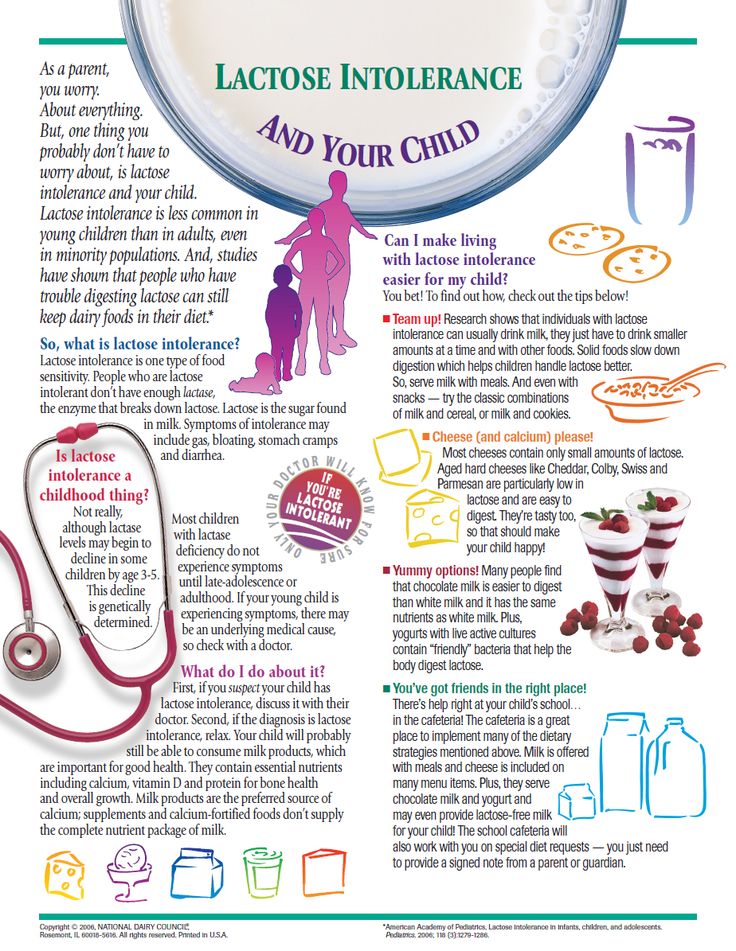 However, if no measures are taken, dysbiosis can be prolonged and cause diseases due to the addition of a secondary infection [6].
However, if no measures are taken, dysbiosis can be prolonged and cause diseases due to the addition of a secondary infection [6].
Note
Dysbiosis is a violation of the bacterial composition of the microflora: the number of lactobacilli and bifidobacteria decreases, and the number of pathogens increases.
The cause of dysbiosis can be:
- Improper nutrition, untimely introduction of complementary foods . The baby's intestines are not able to digest "adult" food. The reason is a small amount of enzymes, including pepsin. In addition, the expansion of the diet in children under five months leads to the premature production of gastrin and histamine by the cells of the stomach. The digestive system goes into a state of hypersensitivity. Feeding a child with food that he is not ready for due to the failure of digestive juices can lead to impaired peristalsis, diarrhea, constipation and disorders of the composition of the bacterial flora.
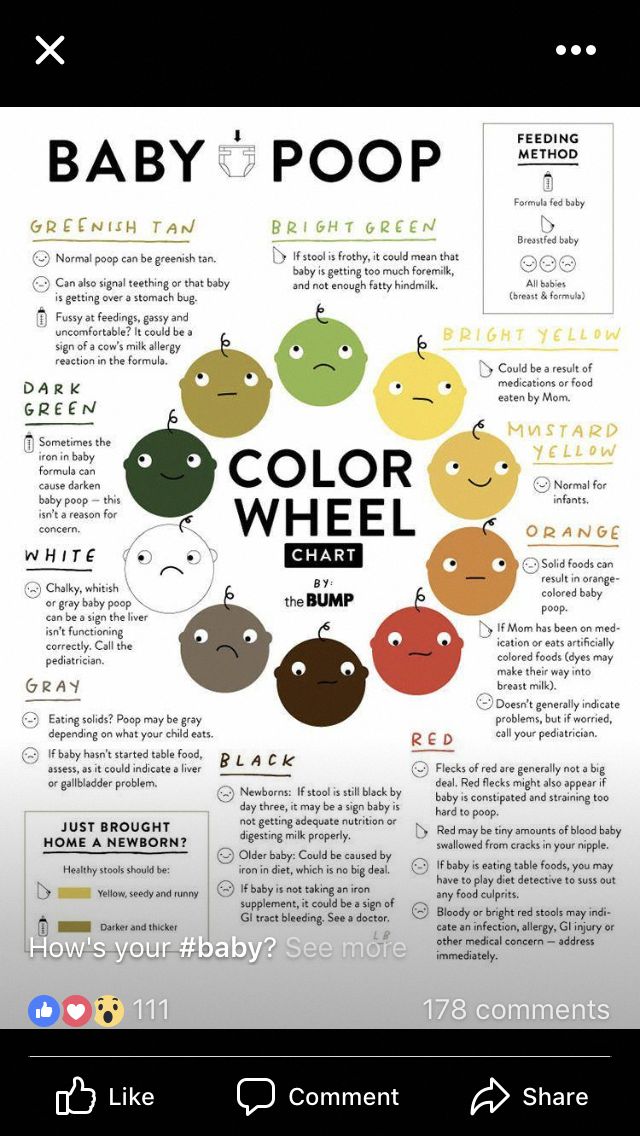
- Artificial feeding. Adapted mixtures, although they are as close as possible in composition to mother's milk, are still not an exact copy of it and do not contain the required amount of beneficial bacteria.
- Violation of hygiene standards. As we have already said, microbes easily penetrate through the delicate mucous membranes, so the care of the baby must be treated as responsibly as possible. Dirty hands and bottles can be sources of infection. Even maternal breasts require careful handling before and after feeding.
- Taking antibacterial agents. Antibiotics destroy not only pathogenic bacteria, but also beneficial ones. Therefore, after the use of antibacterial agents, the ratio of microorganisms in the digestive system often changes. Taking such serious drugs should justify the potential risk to the health of the baby.
- Acute infectious diseases. Children of the first years of life often get sick due to the fact that they do not have immunity to many microorganisms (adenoviruses, RS viruses, pneumococci), and immunoglobulins - protective factors - have low activity.
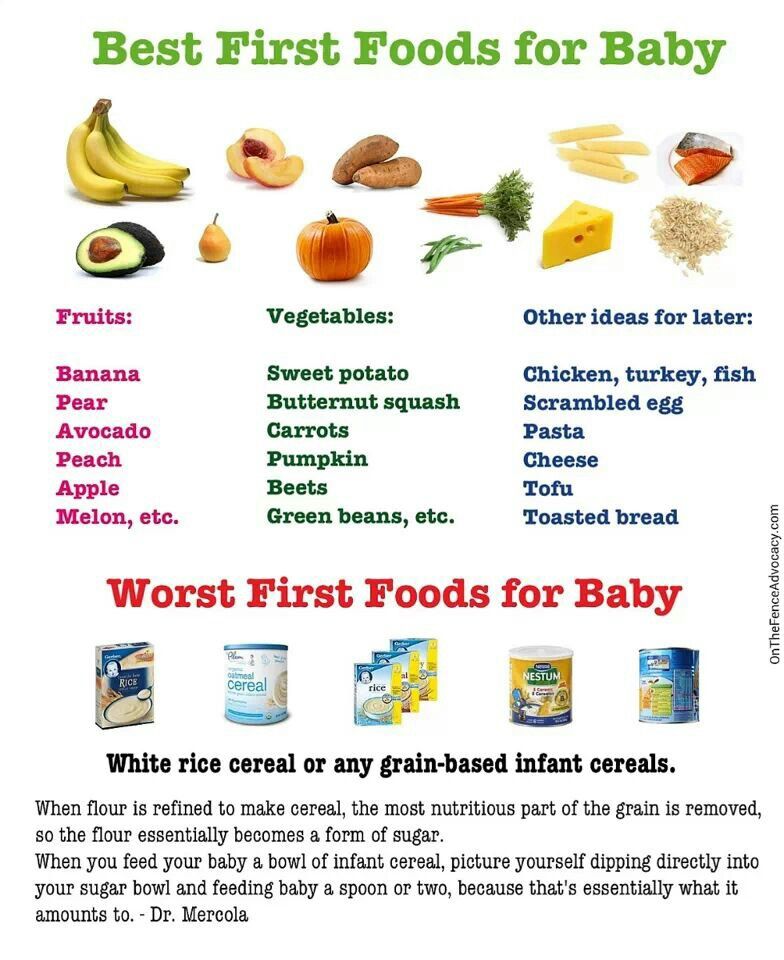 As a result, harmful microbes easily enter the body. There is an imbalance not only at the site of penetration, but also in the microflora of the baby's digestive organs.
As a result, harmful microbes easily enter the body. There is an imbalance not only at the site of penetration, but also in the microflora of the baby's digestive organs.
Diseases of the digestive system in infants
Common indigestion in children - thrush . It is caused by yeast fungus candida, so the disease has another name - candidiasis. Fungi normally exist in the body of babies in a small amount, but in conditions of an imbalance in the microflora, Candida begins to multiply actively. Fungi can be transmitted through dirty hands and bottles, or even in the prenatal period if the mother is sick with thrush. The main symptom is "curdled" raids on the mucous cheeks, tongue, gums and palate: such changes in the oral cavity can be detected already on the 5-14th day of life. With thrush, babies cry during feeding, behave restlessly and often spit up. Without treatment, candidiasis can spread beyond the oral cavity: into the respiratory system, stomach and intestines of the child [7].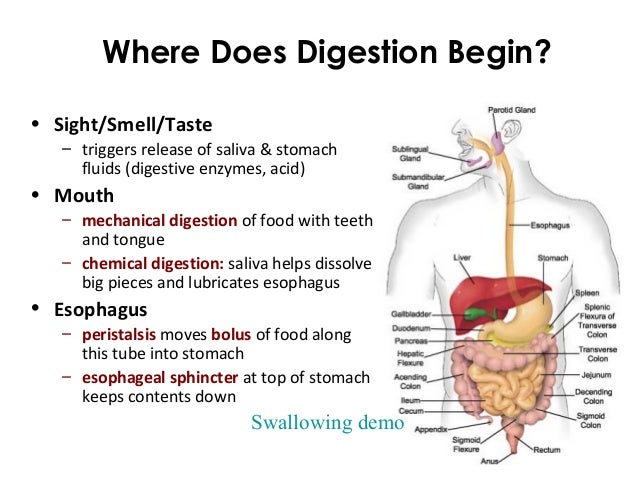
Another common illness in childhood is gastroesophageal reflux (GERD) . The disease is manifested by the periodic reflux of food from the stomach back into the esophagus. Children feel a burning sensation in the chest and pain, cry and refuse food. Often there are eructations and regurgitation of sour contents. GERD is a dangerous complication of the respiratory system up to the development of pneumonia [8]. Against the background of dysbiosis, the reverse reflux of food creates conditions for infection of the upper parts of the digestive organs of babies by pathogenic microorganisms.
Prevention
The best treatment for any disease is prevention. Simple rules will help maintain and strengthen the health of the child's digestive system. The most important thing is hygiene: everything that the child comes into contact with must be processed. Do not use raw water for drinking and cooking - this is a potential source of infection. It is better to wash plates, cups and spoons immediately after use, and boil bottles and nipples - many microorganisms cannot withstand high temperatures.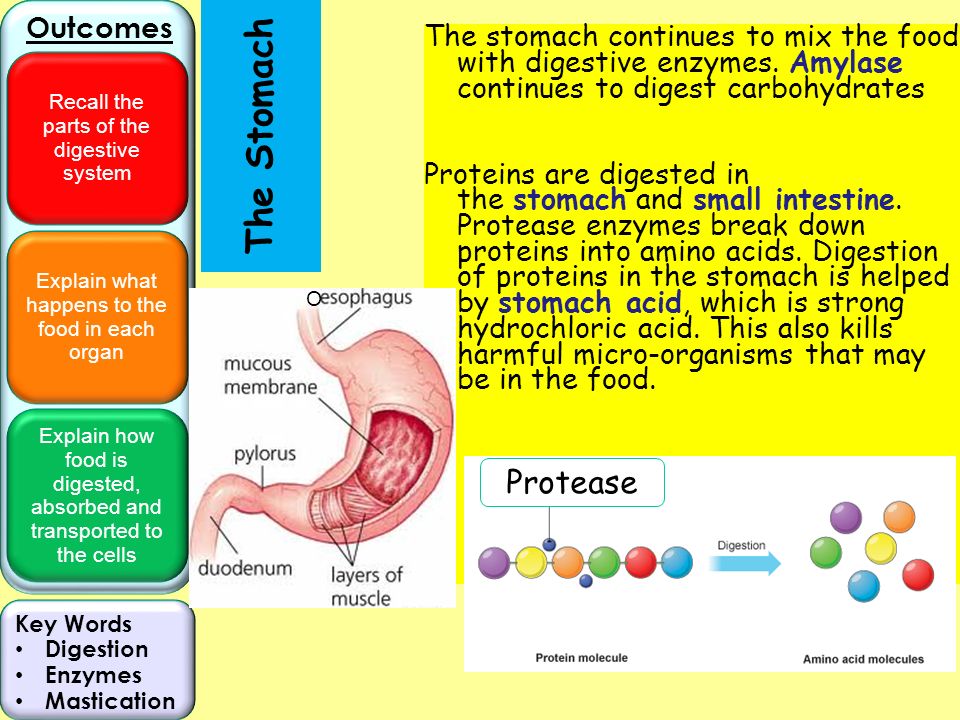 Hands must be washed thoroughly and often: during the day, many bacteria settle on them, to which the child has no immunity. Before feeding, the mother needs to wash her breasts and express the first drops - they may contain germs[9].
Hands must be washed thoroughly and often: during the day, many bacteria settle on them, to which the child has no immunity. Before feeding, the mother needs to wash her breasts and express the first drops - they may contain germs[9].
Rational nutrition according to age helps to absorb useful substances to the maximum extent. Food, for which the child's gastric juices are not active enough, creates unfavorable conditions for digestion: it stays longer in the body, causes disturbances in motor skills and microflora, and these are prerequisites for diseases of the digestive system. It is important to prevent underfeeding and overfeeding the child - nutrition must be adequate. This golden mean is not always easy to follow, but you need to remember what threatens the baby with overeating and the other extreme - malnutrition. Excess food overwhelms a small stomach that is not ready for this, digestive juices cannot cope with an abundance of food, dyspepsia and dysbiosis occur. Underfeeding is fraught with the fact that the body will not have enough nutrients for normal development[10].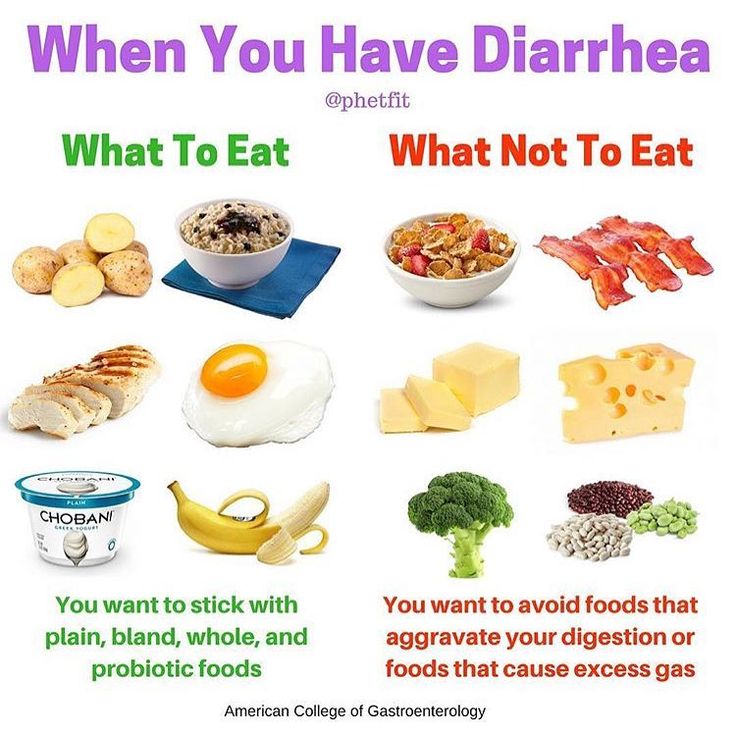
Babies should always be dressed appropriately for the weather, contact with sick people and hypothermia should not be allowed. Be sure to vaccinate according to the vaccination calendar: this reduces the likelihood of developing infectious diseases.
Treatment with antibacterial drugs is possible only in consultation with the doctor. A “lifeline” that reduces the likelihood of developing dysbiosis while taking antibiotics is probiotics [11]. Means containing live bifidobacteria and lactobacilli restore the microflora even in conditions of an already formed disorder. This reduces the likelihood of transition from temporary disorders to chronic diseases. To improve digestion, children are shown early administration of probiotics - literally from the first day of life. Taking such funds not only helps to populate the intestines of the baby with beneficial microorganisms, but also strengthens the immune system, accelerates the adaptation processes of the child's body.
At the slightest signs of diseases of the digestive system in children, it is necessary to consult a pediatrician.